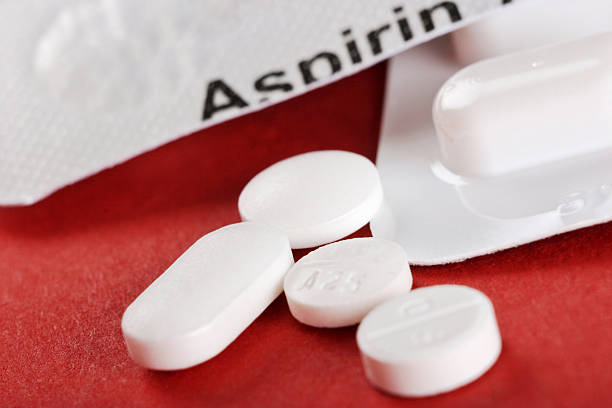
It’s not a secret that heart disease is the most fatal cause of death. Gone is the time when doctors suggested aspirin to patients at high risk as a safe solution to keep heart diseases at lower risk. It’s a good thing – studies have demonstrated that Cartia low dose aspirin reduces inflammation, reduces blood clots, and decreases the chance of death for those suffering from a heart attack. However, there’s more to this story.
Although taking a few aspirins to alleviate headaches and muscle strains or inflammation is usually safe, taking an aspirin every day is not without risk. There are some serious dangers which include internal bleeding. This article gives a brief outline of aspirin’s properties, its use, the potential risks, interactions, as well as potential side effects.
Uses of Low Dose Aspirin
Aspirin is used for various purposes that include reducing swelling and pain, managing various ailments, and reducing the risk of cardiovascular events in those at high risk. In the following paragraphs, we will discuss the benefits of aspirin in greater detail.
Preventing Heart Attacks
A daily dose of low-dose aspirin could reduce the risk of heart attacks for some individuals — however, it’s not recommended for all. Food and Drug Administration (FDA) suggests only taking aspirin in conjunction with a physician.
Low-dose aspirin may lower the risk by stopping blood clots from forming for people who have high risks of having cardiovascular events.
The Swelling and Pain
Aspirin is a great remedy for mild to moderate swelling, pain, or both related to various health problems like:
- headaches
- A cold or the flu
- strains and sprains
- menstrual cramps
- chronic illnesses, like migraine and arthritis
If you suffer from severe pain, doctors may suggest taking aspirin with another medication like the opioid painkiller or another NSAID.
The Treatment of Coronary Conditions
Doctors can administer aspirin right away following a heart attack, stroke, or another heart-related event to stop further development of clots as well as cardiac tissue death.
Aspirin may also be an element of a treatment plan for those who recently experienced:
- Revascularization surgery, for instance, a coronary bypass or angioplasty
- an instantaneous stroke, or an ischemic transient
- The blood clot causes an ischemic stroke

Potential Adverse Effects of Aspirin
Common side effects
Consult your physician or pharmacist if any symptoms you experience persist:
- mild indigestion
- Bleeding more often than normal due to aspirin’s ability to thin your blood may occasionally cause you to suffer from more bleeding. For instance, you could suffer from nosebleeds or bruises more easily. Additionally, if you are injured and the bleeding could be more difficult to end.
Severe complications and side effects of daily aspirin use are:
Stroke is caused by a ruptured blood vessel. While daily aspirin helps prevent stroke caused by a clot increase the chance of having a bleeding stroke (hemorrhagic stroke).
The bleeding of the stomach. Daily aspirin use increases the chance of developing an ulcer in your stomach. If you already suffer from an ulcer or stomach bleeding, aspirin can cause additional bleeding, possibly to a life-threatening level.
Allergy reaction. If you’re allergic to aspirin, all amounts of the drug could cause a severe allergic reaction.
Aspirin is a medicine that you take and requires surgery or dental procedure, and you must inform the dentist or surgeon in advance to plan measures to avoid excessive bleeding. Stop taking aspirin without speaking with your physician.
Drug Interactions
A drug interaction could result in the use of one drug that renders another less effective or the combination posing a risk.
Aspirin may interact with a variety of medications. The most common are:
Anti-inflammatory painkillers: Examples include such as diclofenac, ibuprofen, and naproxen. When combined with aspirin, these kinds of medications can increase the chance of bleeding from the stomach.
Selective serotonin reuptake inhibitors as well as other drugs to treat depression. For example, citalopram and fluoxetine, as well as paroxetine, sertraline, and venlafaxine. Together with aspirin, any of them can raise the chance of bleeding.
Warfarin: In conjunction with this blood thinner aspirin could lower the effects of the anticoagulant drug and increase the chance of bleeding. There are occasions that this combination can be beneficial.
Methotrexate: When combined with the drug used to treat cancer and autoimmune diseases, aspirin may make the drug more difficult to eliminate, resulting in harmful levels of methotrexate.
Final Words
Aspirin may help prevent and treat a variety of health problems; however, individuals under the age of 18 should not make use of it without medical advice. Aspirin can be bought on the market either over the counter or via prescription. Always follow the directions on the label or the physician’s advice. This is especially important for those who are more susceptible to experiencing adverse reactions. Aspirin isn’t suitable for everyone, particularly when used on a daily dose. Other alternatives for pain relief that are mild include other NSAIDs like ibuprofen and Acetaminophen.